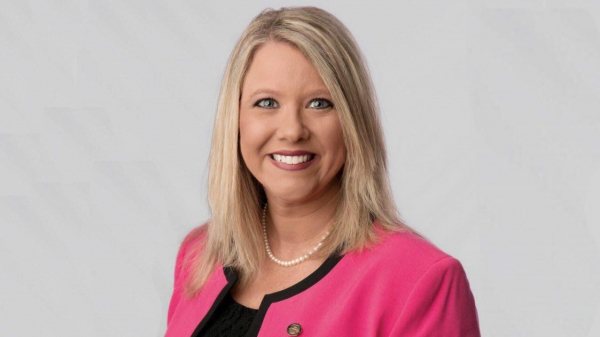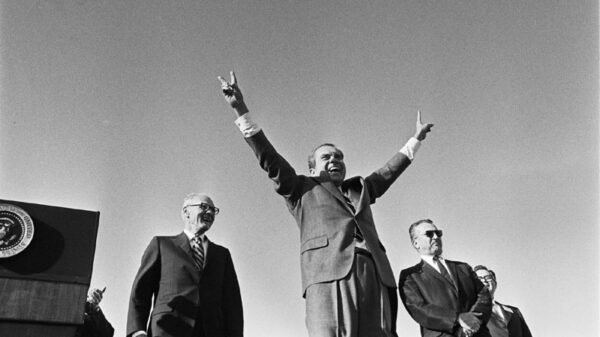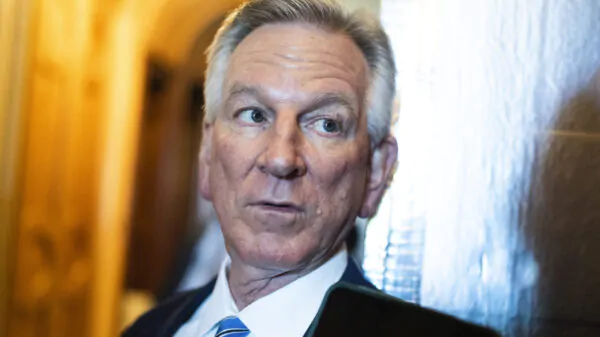By Bill Britt
Alabama Political Reporter
Alabama Ethics Commission Director James L. Sumner approved a lucrative contract between House Speaker Mike Hubbard and a company seeking favorable Medicaid legislation, even though Sumner never saw the contract and relied entirely on Hubbard’s verbal characterization of the business arrangement.
According to Sumner, Hubbard informed him after-the-fact of a business agreement between Hubbard’s media company, Auburn Network Inc., and the Bessemer-based American Pharmacy Cooperative Inc. (APCI). “He said it (the contract) was to provide several services is what I understood. I don’t recall that he went into detail.”
APCI is a advocacy group for independent pharmacies, providing government lobbying services, as well as bulk purchasing of prescription drugs. APCI pushed aggressively this spring for a General Fund budget that allow APCI to become the Pharmacy Benefits Manager for Alabama Medicaid Agency, an arrangement potential worth millions of dollars in federal and state Medicaid funds. Budget language pushed by APCI would have made the company the only qualified PBM in Alabama.
Pharmacy Benefits Managers (PBM) would administer to prescription drug purchases for Medicaid. Major pharmacies across the state – as well as some critics in Gov. Bentley’s administration – were concerned that PBMs might cut reimbursements, making it harder for Medicaid recipients to get their medicines.
Even though APCI was one of the most active groups lobbying for a share of $600 million-a-year in state and federal Medicaid money, Sumner told the Alabama Political Reporter that he saw no need for the Ethics Commission or its lawyers to examine details of the business arrangements between the Speaker of the House and APCI. “No, I never saw a contract and didn’t ask to see a contract,” Sumner said.
Without seeing the contract, it is impossible to know whether APCI monetary payments to Hubbard were intended to influence his favorable votes. Sumner did not indicate whether he warned Hubbard that the contract – or Hubbard’s multiple votes on the APCI/ Budget bill – presented a clear or potential conflict of interest.
Alabama’s ethics code defines conflicts of interest this way, “A conflict of interest involves any action, inaction, or decision by a public official or public employee in the discharge of his or her official duties which would materially affect his or her financial interest or those of his or her family members or any business with which the person is associated in a manner different from the manner it affects the other members of the class to which he or she belongs.”
Sumner explained that Hubbard’s statement of economic interest should list his income from Auburn Network.
“If I can make an analogy,” said Sumner, “it is like a law firm, say a member of the legislature is a lawyer, they will indicate income from their law firm but they won’t indicate that they have 25 clients, individually, by name.”
However, Hubbard’s Statement of Economic Interest form on April 30, 2013, does not disclose any agreement with APCI.
Tim Hamrick, the Chief Executive Officer of the American Pharmacy Cooperative Inc. (APCI) would not return phone calls from the Alabama Political Reporter. But he did confirmed the Auburn Network relationship in a brief email on Friday. Hamrick contended in his email statement that Sumner approved the arrangement “ … although not required.”
“Our group is pleased with the Auburn Network relationship, which supports our membership growth strategies in 23 other states,” Hamrick said in his email statement. “Additionally, although not required, the relationship has been reviewed and blessed by the Director of the Alabama Ethics Commission.”
According to the groups website they represent only do business in 23 U,S, states including Alabama.
According to the Drug Store News publication, APCI represents more than 1,300 drug stores across the country. The drug stores pool resources under the umbrella of APCI and purchase prescription drugs at bulk rates from pharmaceutical companies. One of the lobbying outfits the APCI is affiliated with is the National Community Pharmacy Association, which spent more than $1.6 million on lobbying in Washington since 2012. In Alabama, APCI uses high-powered Montgomery lobbyist Bill Eley.
Auburn Network is a private company, 100-percent owned by Hubbard. The Auburn Network held the broadcast rights to Auburn University sports for years until Hubbard sold that division of the company for undisclosed terms to International Sports Properties, now known as IMG Sports.
It is unclear when Hubbard’s financial arrangement with APCI started.
Hubbard does have another consulting contract with the Southeast Alabama Gas District (SEAGD) located in Dothan. Since January, 2012 Hubbard has represented SEAGD in the area of economic development, according to Chairman of the Board Billy Blackwell. For these services Hubbard is paid $12,000.00 a month.
Unlike the contract with APCI the Alabama Ethics Commission did review the contract that Hubbard signed with SEAGD. Legal council for the commission Hugh Evans, III, wrote in his opinion, “The only potential issue that we saw [with the SEAGD contract] would be if something came before the legislature that uniquely affected the Southeast Alabama Gas District differently than it affected all other utilities around the State of Alabama.”
Evans said that should an issue that directly effected SEAGD come before the legislature that Hubbard “would expect … to remove himself from discussions, votes, etc.” Evan’s also stated in his opinion that, “the Speaker may not use his position or mantle of his office to assist him in …providing benefits to his … clients.”
Sumner had a different take on conflicts of interest when ex-Senator Roger Bedford ran into ethical problems a decade ago. Bedford was an officer in a bankrupt mobile home business that was in line to receive state bond money at Bedford’s behest.
According to the Birmingham News, Sumner said at the time that legislators risked violating ethics laws when they vote on matters that could benefit them. “If the money is going to a business that the legislator has an interest in, that’s a potential problem.”
SEAGD is a quasi public-private entity that is owned by 14 municipalities in southeastern part of the state.
Both the APCI and SEAGD contracts are held by Hubbard’s Auburn Network.



















































